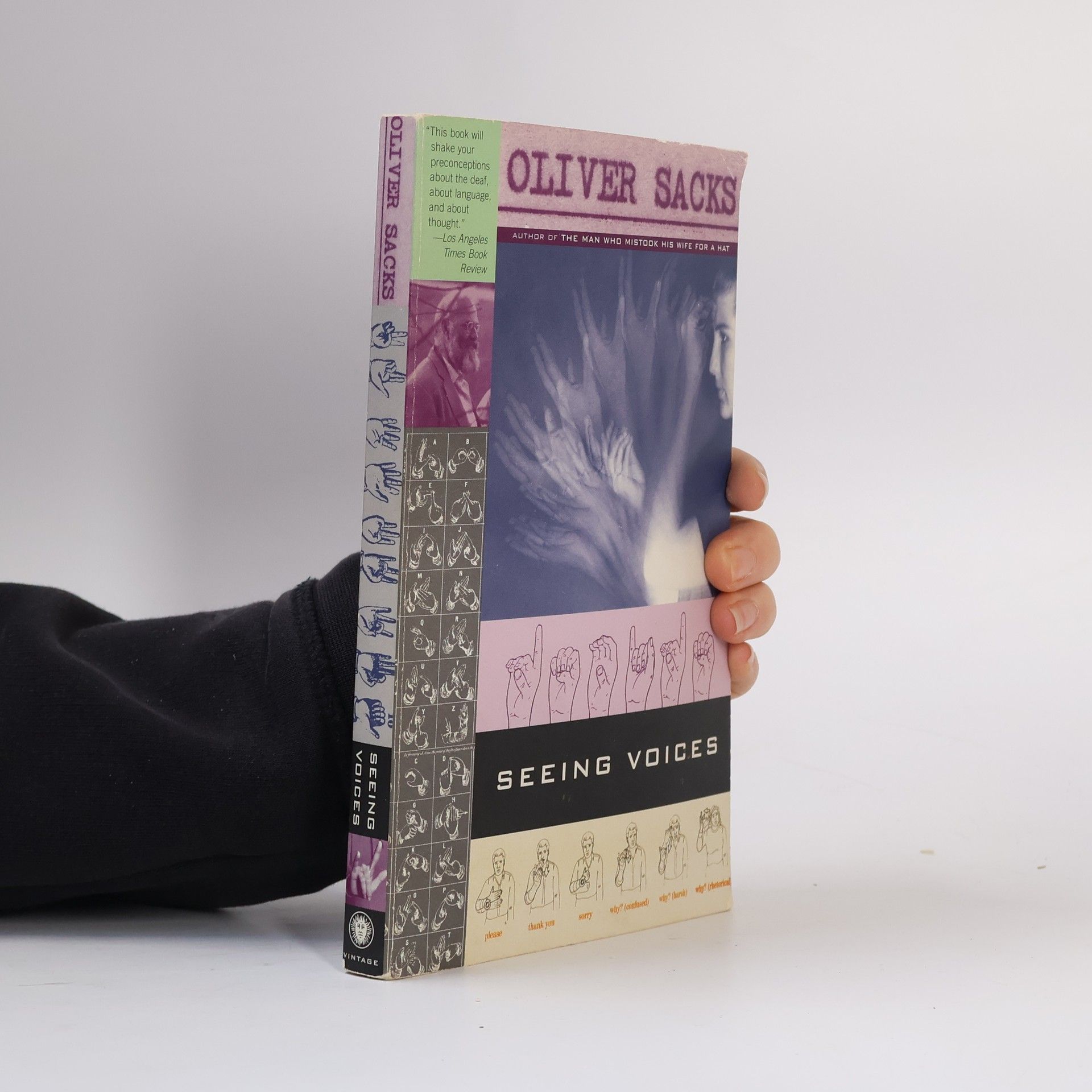Oliver Sacks died in August 2015 at his home in Greenwich Village, surrounded by his close friends and family. He was 82. He spent his final days doing what he loved: playing the piano, swimming, enjoying smoked salmon - and writing. As Dr Sacks looked back over his long, adventurous life his final thoughts were of gratitude. In a series of remarkable, beautifully written and uplifting meditations, in Gratitude Dr Sacks reflects on and gives thanks for a life well lived, and expresses his thoughts on growing old, facing terminal cancer and reaching the end. I cannot pretend I am without fear. But my predominant feeling is one of gratitude. I have loved and been loved; I have been given much and I have given something in return; I have read and travelled and thought and written. I have had an intercourse with the world, the special intercourse of writers and readers. Above all, I have been a sentient being, a thinking animal, on this beautiful planet, and that in itself has been an enormous privilege and adventure.
Oliver Sacks Books
Oliver Sacks was a British neurologist renowned for his captivating patient narratives that delve into the intricacies of the human mind and brain. His work fluidly bridges scientific inquiry with profound empathy, uncovering extraordinary stories of affliction that reveal the remarkable resilience of the human spirit. Sacks focused on exploring neurological disorders, examining their impact on identity and perception. His approach, consistently humane and inquisitive, invited readers to contemplate the very essence of what it means to be human.







The letters of one of the greatest observers of the human species, revealing his passion for life and work, friendship and art, medicine and society, and the richness of his relationships with friends, family, and fellow intellectuals over the decades, collected here for the first time.
On The Move: A Life
- 397 pages
- 14 hours of reading
When Oliver Sacks was twelve years old, a perceptive schoolmaster wrote in his report: 'Sacks will go far, if he does not go too far.' It is now abundantly clear that Sacks has never stopped going. From its opening pages on his youthful obsession with motorcycles and speed, On the Move is infused with his restless energy. As he recounts his experiences as a young neurologist in the early 1960s, first in California and then in New York, where he discovered a long forgotten illness in the back wards of a chronic hospital, as well as with a group of patients who would define his life, it becomes clear that Sacks' earnest desire for engagement has occasioned unexpected encounters and travels - sending him through bars and alleys, over oceans, and across continents. With unbridled honesty and humour, Sacks shows us that the same energy that drives his physical passions - bodybuilding, weightlifting, and swimming - also drives his cerebral passions. He writes about his love affairs, both romantic and intellectual, his guilt over leaving his family to come to America, his bond with his schizophrenic brother, and the writers and scientists - A.R. Luria, W.H. Auden, Francis Crick - who influenced him. On the Move is the story of a brilliantly unconventional physician and writer - and of the man who has illuminated the many ways that the brain makes us human
The Island of the Colorblind Open
- 298 pages
- 11 hours of reading
In his books An Anthropologist on Mars and The Man Who Mistook His Wife for a Hat, Oliver Sacks details the lives of patients isolated by neurological disorders, shedding light on our common humanity and the ways in which we perceive the world around us. Now he looks at the effects of physical isolation in The Island of the Colorblind. On this journey, he carried with him the intellectual curiosity, kind understanding, and unique vision he has so consistently demonstrated. Drawn to the Micronesian island of Pingelap by reports of a community of people born totally colorblind, Dr. Sacks set up a clinic in a one-room dispensary. There he listened to patients describe their colorless world in terms rich with pattern and tone, luminance and shadow. Then, in Guam, he investigated a puzzling neurodegenerative paralysis, making housecalls amid crowing cockerels, cycad jungles, and the remains of a colonial culture. The experience afforded Sacks an opportunity to elaborate on such personal passions as botany and history and to explore the meaning of islands, the dissemination of species, the birth of disease, and the nature of deep geologic time.
An Anthropologist on Mars
- 336 pages
- 12 hours of reading
As with The Man Who Mistook His Wife for a Hat, Oliver Sacks uses case studies to illustrate the myriad ways in which neurological conditions can affect our sense of self, our experience of the world, and how we relate to those around us. Writing with his trademark blend of scientific rigour and human compassion, he describes patients such as the colour-blind painter or the surgeon with compulsive tics that disappear in the operating theatre; patients for whom disorientation and alienation - but also adaptation - are inescapable facts of life.
Thinking in Pictures
- 304 pages
- 11 hours of reading
The idea that some people think differently, though no less humanely, is explored in this inspiring book. Temple Grandin is a gifted and successful animal scientist, and she is autistic. Here she tells us what it was like to grow up perceiving the world in an entirely concrete and visual way - somewhat akin to how animals think, she believes - and how it feels now. Through her finely observed understanding of the workings of her mind she gives us an invaluable insight into autism and its challenges.
Awakenings
- 352 pages
- 13 hours of reading
By the author of Seeing Voices', this is a narrative about the awakening of 20 patients from a zombie-like state they had suffered for over 40 years. A new drug meant the sleeping sickness disease was now treatable. Sacks tells the history, offers his own observations and the patients' reactions.
Seeing Voices
- 240 pages
- 9 hours of reading
The renowned neurologist and bestselling author of Awakenings takes us on a journey into the world of Deaf culture, and the underpinnings of the remarkable visual language of the congenitally deaf. • "This book will shake your preconceptions about the deaf, about language and about thought.... One of the finest and most thoughtful writers of our time." — Los Angeles Times Book ReviewLike The Man Who Mistook His Wife for a Hat, this is a fascinating voyage into a strange and wonderful land, a provocative meditation on communication, biology, adaptation, and culture. In Seeing Voices, Oliver Sacks turns his attention to the subject of deafness, and the result is a deeply felt portrait of a minority struggling for recognition and respect—a minority with its own rich, sometimes astonishing, culture and unique visual language, an extraordinary mode of communication that tells us much about the basis of language in hearing people as well. Seeing Voices is, as Studs Terkel has written, "an exquisite, as well as revelatory, work."
Everything in Its Place
- 288 pages
- 11 hours of reading
"In this final volume, Oliver Sacks examines the many passions of his own life, as a doctor engaged with the central questions of human existence, and as a polymath conversant in all the sciences. Everything in Its Place brings together writings--many never before published--on a rich variety of topics. Why do humans need gardens? How, and when, does a physician tell his patient she has Alzheimer's? What is social media doing to our brains? In several of the compassionate case histories included here, Sacks considers the enigmas of depression, psychosis, and schizophrenia for the first time, and in others he returns to conditions that have long fascinated him: Tourette's syndrome, aging, dementia, and hallucinations. In counterpoint to these elegant investigations of what makes us human, this volume also includes pieces that celebrate Sacks's love of the natural world--and his final meditations on life in the twenty-first-century. Everything in Its Place gives us an intimate portrait of a master writer and thinker at work."--Dust jacket.
‘A humane discourse on the fragility of our minds, of the bodies that give rise to them, and of the world they create for us.’ Daily Telegraph Oliver Sacks’ compassionate tales of people struggling to adapt to different neurological conditions have fundamentally changed the way we understand our own minds. In Musicophilia, he examines the powers of music through the individual experiences of patients, musicians and everyday people – those struck by affliction, unusual talent and even, in one case, by lightning – to show not only that music occupies more areas of the brain than language does, but also that it can calm and organize, torment and heal. Always wise and compellingly readable, these stories alter our conception of who we are and how we function, and show us an essential part of what it is to be human. ‘Fascinating. Music, as Sacks explains, “can pierce the heart directly”. And this is the truth that he so brilliantly focuses upon – that music saves, consoles and nourishes us’ Daily Mail ‘Irresistible, astonishing and moving’ Spectator ‘Deeply warm and sympathetic’ Guardian



